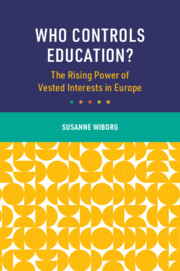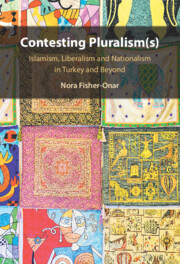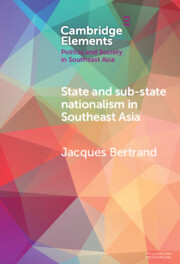Refine search
Actions for selected content:
156 results
The distribution of hate speech and its implications for content moderation
-
- Journal:
- Political Science Research and Methods , First View
- Published online by Cambridge University Press:
- 22 December 2025, pp. 1-9
-
- Article
-
- You have access
- Open access
- HTML
- Export citation
Preemptive multipartism and democratic transitions
-
- Journal:
- Political Science Research and Methods , First View
- Published online by Cambridge University Press:
- 19 December 2025, pp. 1-20
-
- Article
-
- You have access
- Open access
- HTML
- Export citation
Limited backlash? Assessing the geographic scope of electoral responses to refugees
-
- Journal:
- Political Science Research and Methods , First View
- Published online by Cambridge University Press:
- 03 December 2025, pp. 1-9
-
- Article
-
- You have access
- Open access
- HTML
- Export citation
Complacent Democrats: The Political Preferences of Gen Z Indonesians
-
- Journal:
- Journal of East Asian Studies / Volume 25 / Issue 2 / July 2025
- Published online by Cambridge University Press:
- 06 October 2025, pp. 259-286
-
- Article
-
- You have access
- Open access
- HTML
- Export citation
Global dominant party systems dataset (GDPS): Data on executive dominance 1900–2024
-
- Journal:
- Italian Political Science Review / Rivista Italiana di Scienza Politica / Volume 55 / Issue 3 / November 2025
- Published online by Cambridge University Press:
- 10 September 2025, pp. 276-284
- Print publication:
- November 2025
-
- Article
-
- You have access
- HTML
- Export citation

Voters' Perceptions of Party Brands
-
- Published online:
- 15 August 2025
- Print publication:
- 04 September 2025
-
- Element
- Export citation
To Oppose or Not to Oppose? Strategies of Opposition Parties’ Parliamentary Support for Government Legislation
-
- Journal:
- Government and Opposition / Volume 60 / Issue 4 / October 2025
- Published online by Cambridge University Press:
- 01 August 2025, pp. 895-917
-
- Article
-
- You have access
- Open access
- HTML
- Export citation
The movementization of political parties: a new trend in party politics?
-
- Journal:
- Italian Political Science Review / Rivista Italiana di Scienza Politica / Volume 55 / Issue 3 / November 2025
- Published online by Cambridge University Press:
- 25 July 2025, pp. 268-275
- Print publication:
- November 2025
-
- Article
-
- You have access
- Open access
- HTML
- Export citation
7 - Conclusion
- from Part II - Migrant Workers Blunting Control
-
- Book:
- Beyond Coercion
- Published online:
- 10 June 2025
- Print publication:
- 12 June 2025, pp 146-162
-
- Chapter
- Export citation
Italy, the EU-9, and the double-sided gap: a longitudinal analysis of mass-elite congruence on European integration (1979–2016)
-
- Journal:
- Italian Political Science Review / Rivista Italiana di Scienza Politica / Volume 55 / Issue 2 / July 2025
- Published online by Cambridge University Press:
- 20 May 2025, pp. 121-137
- Print publication:
- July 2025
-
- Article
-
- You have access
- Open access
- HTML
- Export citation

Who Controls Education?
- The Rising Power of Vested Interests in Europe
-
- Published online:
- 26 March 2025
- Print publication:
- 03 April 2025

Conspiracy Theories and their Believers
- A Comparative Outlook
-
- Published online:
- 24 February 2025
- Print publication:
- 20 March 2025
-
- Element
- Export citation
The Demand for Insurance: Incorporating the Severity of Losing Office into the Insurance Model of Judicial Independence
-
- Journal:
- Journal of Law and Courts / Volume 13 / Issue 1 / April 2025
- Published online by Cambridge University Press:
- 20 January 2025, pp. 304-325
-
- Article
-
- You have access
- Open access
- HTML
- Export citation
Waving the same flag? Government legislation and obstructionism during the COVID-19 crisis in Italy
-
- Journal:
- Italian Political Science Review / Rivista Italiana di Scienza Politica , First View
- Published online by Cambridge University Press:
- 03 January 2025, pp. 1-15
-
- Article
-
- You have access
- Open access
- HTML
- Export citation
By Way of Introduction
-
- Book:
- Contesting Pluralism(s)
- Published online:
- 19 December 2024
- Print publication:
- 02 January 2025, pp 1-2
-
- Chapter
- Export citation
Conclusion
-
- Book:
- Contesting Pluralism(s)
- Published online:
- 19 December 2024
- Print publication:
- 02 January 2025, pp 300-322
-
- Chapter
- Export citation
2 - Pluralizers and Anti-Pluralists
- from Part I - Theory
-
- Book:
- Contesting Pluralism(s)
- Published online:
- 19 December 2024
- Print publication:
- 02 January 2025, pp 30-58
-
- Chapter
- Export citation

Contesting Pluralism(s)
- Islamism, Liberalism, and Nationalism in Turkey and Beyond
-
- Published online:
- 19 December 2024
- Print publication:
- 02 January 2025

State and Sub-State Nationalism in Southeast Asia
-
- Published online:
- 04 December 2024
- Print publication:
- 09 January 2025
-
- Element
- Export citation
1 - Introduction
- from Introduction
-
-
- Book:
- States of Language Policy
- Published online:
- 14 November 2024
- Print publication:
- 21 November 2024, pp 3-26
-
- Chapter
- Export citation
